#An attempt at Berthier
Explore tagged Tumblr posts
Text
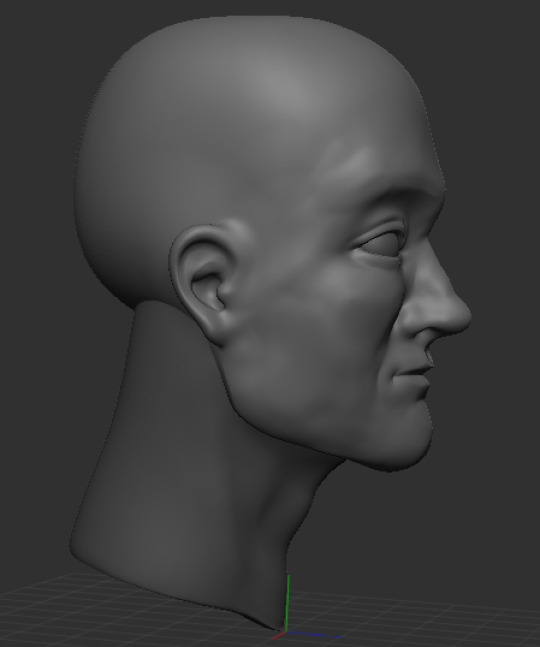
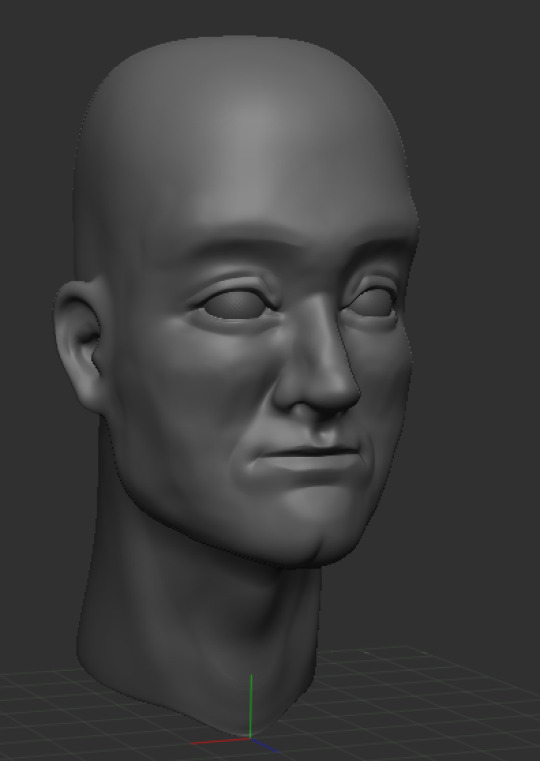
I have not entirely forgotten how sculpt as the mood was yesterday.
On account I have only been sculpting with a modicum of "seriousness" for about 2 years (and on and off in that time), I suppose I gotta live with the fact I do not do it as quickly as drawing.
Also while trying to make it look like Berthier, I am again thwarted by the hell that is trying to get a likeness from multiple guys drawing at multiple different times and never being sure who used the most Ye Olde Photoshoppe
I also need to throw hair on him too. I feel like my mental image of Berthier hinges on his curly hair.
#3d sculpting#zbrush#An attempt at Berthier#at least doesn't look like an alien wearing a very poor quality meat suit#wip
7 notes
·
View notes
Text
Title: The Marshal’s Court
Genre: Romantic Dramedy (In the style of Bridgerton)
Setting: The First French Empire, Napoleon’s Marshals as the central characters
Season 1, Episode 4: “Manners and Macarons”
Episode Synopsis:
The fourth episode of The Marshal’s Court turns the chaos dial up to eleven. Napoleon, fed up with his Marshals’ blunders at diplomatic functions and balls, decides to hire an etiquette instructor. The results are so disastrous they aren’t even shown on screen, but it’s implied that after two days of trying to civilize the group, the instructor quits and takes up drinking. Desperate, Napoleon asks Josephine to give them lessons herself. The A-plot focuses on Josephine attempting to teach basic etiquette and dancing to a group of very resistant (and occasionally hopeless) Marshals, including Lannes, Ney, Murat, Davout, Berthier, Augereau, and Bessières. Eugène is there too—no one’s really sure why, and even he looks confused.
Meanwhile, in the B-plot, Soult indulges his secret passion for baking, and we learn more about his hidden dream of opening a bakery.
The episode is a hilarious mix of historical fact, drama, and absurd comedy, with Bessimu shippers getting more hints, Murat struggling with his two left feet, and Augereau channeling his past as a dance instructor.
Opening Scene: Josephine’s Intervention
The episode opens with Napoleon pacing in his study, fuming as reports of his Marshals’ social blunders reach him. He bangs his fist on the desk and calls for an etiquette instructor, only for a footman to announce that the poor man has quit and left Paris altogether after two days with the Marshals.
Napoleon, ever the pragmatist, grumbles to himself and declares, “If I want something done right, I’ll have to bring in the only one who can control them—Josephine.” A quick cut shows Josephine arriving at the Tuileries Palace looking elegant and composed, ready to take on the impossible task of teaching the Marshals how to behave in polite society.
Fan Reactions:
Fans immediately buzz over the instructor quitting. The phrase “Two days with Lannes and Ney will break anyone” becomes a popular meme. Social media theorizes that Josephine’s entrance is about to elevate the dynamic even further, with some fans already anticipating a showdown between Josephine and Murat (who is clearly dreading the dance lessons).
The Dance Lessons: Murat’s Nightmare
Murat, as we know from historical accounts, never learned how to dance, and the writers make full use of this fact. The scene cuts to the grand ballroom, where Josephine begins her lesson by teaching the Marshals basic courtly manners, such as how to bow without knocking over chairs (a clear reference to a previous unseen disaster involving Lannes).
Josephine then turns to dancing. The camera zooms in on Murat, who visibly pales at the thought. “I’ve never had the time for this nonsense,” he mutters, but Josephine gives him a sly look. “You’ll need to learn how to waltz if you want to keep impressing European royalty.”
Murat reluctantly steps onto the dance floor, and the camera pans to Bessières, who watches with a mix of amusement and concern. As Murat fumbles his way through the steps, tripping over his feet more than once, Bessières steps in to help, offering him quiet, reassuring instructions. The tension between them is palpable, and Josephine watches this interaction with a knowing smile, but says nothing.
Fan Reactions:
#Bessimu shippers are fed in this scene. The quiet assistance from Bessières as Murat struggles creates waves across social media, with fans swooning over the subtle affection between the two. One fan creates a viral meme with the caption, “Bessières: Secret dance teacher, secret lover?” Another popular meme shows Murat tripping over his own feet with Bessières catching him, captioned “It’s called grace, look it up, Murat.” The fandom goes wild, convinced that Josephine is in on the secret.
Augereau: Dance Master and Former Pirate
Augereau, who historically worked as both a dance instructor and a fencing master, jumps into the lesson with gusto. He takes the floor confidently and starts demonstrating some more advanced moves, pirouetting and swirling dramatically. The other Marshals look bewildered, but Josephine gives him a bemused nod of approval.
At one point, Lannes and Ney share a glance and mutter to each other, “Wasn’t he a pirate once? Or was that just another of his tall tales?” The camera cuts to Augereau, who overhears them and gives a cheeky grin, saying, “I’ve worn many hats, but dancing is where the true art lies.”
Fan Reactions:
Fans adore Augereau as the unexpectedly graceful Marshal. A viral meme shows Augereau mid-pirouette, captioned “When you’ve defeated armies AND know how to nail a perfect twirl.” Fans also joke about his mysterious past, with some theories emerging about whether Augereau was, in fact, a pirate. The hashtag #PirateAugereau trends briefly as fans debate his murky background.
Berthier: Barely Conscious, But Competent
Berthier, as expected, looks absolutely exhausted throughout the lesson. Historically, Berthier was known to have worked for days with almost no sleep, and this is hilariously exaggerated in the episode. At one point, Josephine asks him to demonstrate a simple bow, but he stumbles forward, barely awake.
Despite his exhaustion, Berthier does have a clue about etiquette, having been raised at Versailles before the Revolution. When pressed, he manages to execute a perfect bow and a few elegant dance steps, but it’s clear he’s running on fumes.
Fan Reactions:
The fandom immediately takes to Berthier’s near-comatose state. Memes of him barely standing but still pulling off a dance move circulate, with captions like “When you haven’t slept in 72 hours but still have to look fabulous.” Fans appreciate the historical nod to his notorious work ethic and speculate that Berthier might actually need to sleep for once.
B-Plot: Soult the Baker
While the Marshals are stumbling through dance lessons, Soult is in the kitchen, indulging his passion for baking. Historically, Soult almost quit the military to become a baker before Napoleon’s Italian campaigns, and the writers take full advantage of this.
In a series of comedic scenes, Soult is seen meticulously preparing dough for macarons, explaining the delicate balance required for perfect pastry as if he’s planning a military maneuver. He refers to the kitchen as “his true battlefield,” and even Lefebvre drops in, raising an eyebrow and asking, “Why didn’t you become a chef instead of a Marshal?”
Soult replies, “Precision is key in both. You just don’t lose as many men in the kitchen.”
In the final moments of the B-plot, Napoleon himself walks into the kitchen, sampling one of Soult’s perfectly baked macarons. With a raised brow, he says, “I should send you to Austria with these. They’re practically a weapon.”
Fan Reactions:
Fans love the Soult subplot, and #SoultBakes trends for a second week in a row. Memes circulate with Soult in his uniform, meticulously icing macarons with captions like, “Conqueror of pastries, master of the battlefield.” Fans start clamoring for Soult to have his own cooking spin-off, half-jokingly demanding that the showrunners create a baking competition featuring all the Marshals.
Eugène: The Mystery
Eugène’s role in the etiquette lesson is puzzling to everyone, including the Marshals. He’s present, attempting to be helpful, but most of the time he stands off to the side, clearly out of his depth. Lannes and Ney keep exchanging looks, silently questioning why Eugène is even there.
At one point, Josephine catches him fumbling through a quadrille and sighs, “You’ll need to work on that, Eugène.”
Fan Reactions:
Fans are mystified by Eugène’s presence in this episode, echoing the characters’ confusion. Memes flood social media with captions like, “Why is Eugène here?” and “Eugène: The forgotten child.” Some fans jokingly speculate that Napoleon keeps Eugène around as a way to test his patience, while others are convinced he’ll have a bigger role later.
Closing Scene:
The episode ends with the Marshals lined up, bowing to Josephine one by one, each with varying degrees of success. Murat still stumbles slightly, but Bessières steps in to offer him a quiet word of encouragement. The scene cuts to Josephine watching them all with an amused smile, while Napoleon, lurking in the background, looks like he’s barely restraining his laughter.
Fan Reactions:
The Bessimu moment at the end is fuel for the shippers, with #Bessimu once again trending. One fan tweets, “Bessières: Here to rescue Murat from himself, one waltz at a time.” Fans are loving Josephine’s role as the Marshals’ etiquette tutor, with memes captioning her as “the real leader of the Empire.”
Teasers for Episode 5:
• Davout and Bernadotte’s rivalry reaches a new height, with tensions brewing over who will take charge of an upcoming campaign.
• Junot makes a surprise reappearance after being notably absent in Episode 4, sparking concern among the other Marshals about his mental state.
• The Bessimu ship gets another tease as Murat and Bessières find themselves in a compromising position during a royal banquet.
• Soult prepares a grand feast for Napoleon’s next big event, but will the stress of both military planning and perfecting his pastries be too much for him?
Fans are left eagerly awaiting the next episode, with social media flooded with theories about Davout and Bernadotte, Junot’s arc, and, of course, more Bessimu content.
#napoleon’s marshals#napoleonic shitpost#ai hell#napoleonic era#napoleon bonaparte#the marshal’s court
6 notes
·
View notes
Text
Arnault meets Bonaparte in Milan
Antoine-Vincent Arnault was a poet and playwright during the napoleonic era and a great admirer of Napoleon. He even wanted to accompany the French army to Egypt. In his "Souvenirs d'un sexagénaire" he also is one of Josephine's most malicious detractors. A lot of the Hippolyte Charles stories seem to come from him.
The scene below is taken from Volume 3 of his memoirs and takes place in 1797. Arnault has gone to Milan and attends a reception organised by the commanding general in the Palazzo Serbelloni.
In the salon I entered were, with Mme Bonaparte, Mme Visconti, Mme Léopold Berthier, since Countess de Lasalle, and Mme Yvan.
I do not know if and how this Madame Yvan is related to Napoleon's surgeon. I'm just here for the next two sentences:
Next to these ladies, on the sofa that lined the room, Eugène de Beauharnais was joking and laughing like a page; of all the men present, he alone was seated. Beyond the archway that marked the entrance to the gallery was the general.
All around him, but at a distance, stood the senior officers, the heads of the army administrations, the magistrates of the city, and also some ministers of the Italian governments, all on their feet like him. [...] Bonaparte did not attempt to rise to the level of the others; he had already been spared the trouble. None of those with whom he conversed seemed taller than he. Berthier, Kilmaine, Clarke, Villemanzy, even Augereau, waited in silence for him to speak to them, a favour they did not all obtain that evening. Never has headquarters looked more like a court. It was what the Tuileries have been ever since.
I just love the description; you can really feel the anxious atmosphere in that hall. Everybody, while pretending to be unfazed, has their eyes on the general, hopes to be noticed by him, talked to by him, does not dare to sit down as long as he doesn't, really already treating him like a monarch - and then there's one teenager who has his priorities down: there are neglected ladies in the room!
Eugène: What's up with you people anyway? That's only my new stepdad! - But go ahead, general, do whatever it is you're doing, I totally have you covered here.
14 notes
·
View notes
Text
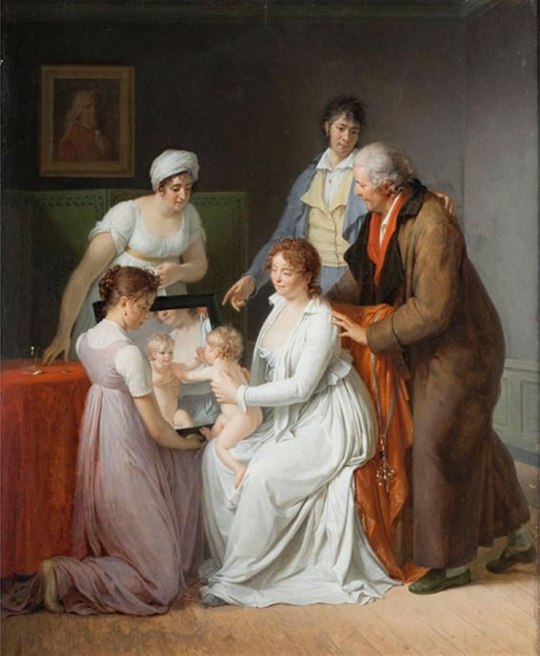
Jacques Augustin Pajou - Portrait of the Artist's Family - ca 1802
oil on canvas, 63 x 52 cm, Musée du Louvre
Jacques-Augustin-Catherine Pajou (27 August 1766, Paris - 28 November 1828, Paris) was a French painter in the Classical style.
His father was the sculptor, Augustin Pajou. Nothing is known of his childhood. In 1784, at the age of eighteen, he became a student at the Académie royale de peinture et de sculpture. Four attempts to win the Prix de Rome were unsuccessful.
In 1792, he became a member of the Compagnie des arts de Paris, organized by the Louvre, alongside the painter Louis-François Lejeune as well as the future economist, Jean-Baptiste Say. While stationed with the regular army in Sedan, he wrote numerous letters to his friend, François Gérard. which express his initial enthusiasm, but gradually turn to boredom, disillusionment and physical exhaustion.
After being demobilized, he participated in creating the "Commune générale des arts", an institution designed to replace the Académie Royale. He served as Secretary for the Commune's President, Joseph-Marie Vien. In 1795, he married Marie-Marguerite Thibault (1764-1827). Under the First Empire, he was commissioned to paint a portrait of Maréchal Louis-Alexandre Berthier, which may still be seen at Versailles. In 1812, he was awarded a gold medal for his depiction of Napoleon offering clemency to the Royalists who had taken refuge in Spain.
In 1811, at the urging of François-Guillaume Ménageot, who had become apprised of the precarious financial situation facing the sculptor David d'Angers, Pajou wrote a letter to the mayor of Angers, demanding that material aid be given to the sculptor. The aid was granted and was considered a lifesaver for d'Angers, who went on to win the Prix de Rome for sculpture and spend several years at the French Academy in Rome. In 1814, he painted three tableaux celebrating the Bourbon Restoration. They were displayed at the Salon and it is possible they were seen by Napoleon.
He resigned from most of the associations of which he was a member in 1823, citing poor health. In a letter from that period, he says that he was "cruelly tormented for a year by a continual tremor." He died in 1828 and was interred at the Cimetière du Père-Lachaise.
His son, Augustin-Désiré Pajou also became a well-known painter.
3 notes
·
View notes
Text
Events 2.15 (before 1950)
438 – Roman emperor Theodosius II publishes the law codex Codex Theodosianus. 590 – Khosrau II is crowned king of Persia. 706 – Byzantine emperor Justinian II has his predecessors Leontios and Tiberios III publicly executed in the Hippodrome of Constantinople. 1002 – At an assembly at Pavia of Lombard nobles, Arduin of Ivrea is restored to his domains and crowned King of Italy. 1113 – Pope Paschal II issues Pie Postulatio Voluntatis, recognizing the Order of Hospitallers. 1214 – During the Anglo-French War (1213–1214), an English invasion force led by John, King of England, lands at La Rochelle in France. 1493 – While on board the Niña, Christopher Columbus writes an open letter (widely distributed upon his return to Portugal) describing his discoveries and the unexpected items he came across in the New World. 1637 – Ferdinand III becomes Holy Roman Emperor. 1690 – Constantin Cantemir, Prince of Moldavia, and the Holy Roman Empire sign a secret treaty in Sibiu, stipulating that Moldavia would support the actions led by the House of Habsburg against the Ottoman Empire. 1764 – The city of St. Louis is established in Spanish Louisiana (now in Missouri, USA). 1798 – The Roman Republic is proclaimed after Louis-Alexandre Berthier, a general of Napoleon, had invaded the city of Rome five days earlier. 1835 – Serbia's Sretenje Constitution briefly comes into effect. 1852 – The Helsinki Cathedral (known as St. Nicholas' Church at time) is officially inaugurated in Helsinki, Finland. 1862 – American Civil War: Confederates commanded by Brig. Gen. John B. Floyd attack General Ulysses S. Grant's Union forces besieging Fort Donelson in Tennessee. Unable to break the fort's encirclement, the Confederates surrender the following day. 1870 – Stevens Institute of Technology is founded in New Jersey, US, and offers the first Bachelor of Engineering degree in mechanical engineering. 1879 – Women's rights: US President Rutherford B. Hayes signs a bill allowing female attorneys to argue cases before the Supreme Court of the United States. 1898 – The battleship USS Maine explodes and sinks in Havana harbor in Cuba, killing about 274 of the ship's roughly 354 crew. The disaster pushes the United States to declare war on Spain. 1899 – Tsar Nicholas II of Russia issues a declaration known as the February Manifesto, which reduces the autonomy of the Grand Duchy of Finland, thus beginning the first period of oppression. 1909 – The Flores Theater fire in Acapulco, Mexico kills 250. 1923 – Greece becomes the last European country to adopt the Gregorian calendar. 1925 – The 1925 serum run to Nome: The second delivery of serum arrives in Nome, Alaska. 1933 – In Miami, Giuseppe Zangara attempts to assassinate US President-elect Franklin D. Roosevelt, but instead shoots Chicago mayor Anton J. Cermak, who dies of his wounds on March 6. 1942 – World War II: Fall of Singapore. Following an assault by Japanese forces, the British General Arthur Percival surrenders. About 80,000 Indian, United Kingdom and Australian soldiers become prisoners of war, the largest surrender of British-led military personnel in history. 1944 – World War II: The assault on Monte Cassino, Italy begins. 1944 – World War II: The Narva Offensive begins. 1945 – World War II: Third day of bombing in Dresden. 1946 – ENIAC, the first electronic general-purpose computer, is formally dedicated at the University of Pennsylvania in Philadelphia. 1949 – Gerald Lankester Harding and Roland de Vaux begin excavations at Cave 1 of the Qumran Caves, where they will eventually discover the first seven Dead Sea Scrolls.
0 notes
Text
*He couldn’t see Berthier properly, let alone Bory. Soult’s giant form was still moving forward as he let go of the collar and stood up, swiftly unfolding his beautiful wings.*
@your-staff-wizard Berthier, I’m coming for you!
*And he plunged into the fiery pit of flaming flora, finding both the marshal and the ADC DuQuay. He grabs both of them, and hopes that he would be able to carry them all as he needs to get out as soon as possible. At last, the carnivorous plant irritated by the heat, finally releases Berthier’s hand*
“Soult, I have them!”
*He shouted out as he finally managed to gain some kind of stability and place both Berthier and his ADC on the ground. He almost feels good about this unless the thought that didn’t originate in his own mind pushed itself in - THERE IS BORY. HOW? Why? What is he even… THAT STUPID PIECE OF SHIT AND HIS FUCKING PLANTS. He lets out a groan almost similar to that of a dragon and he flies up once again.*
*The hot air is pushing his wings up and the smoke flavoured by all the attempts of taming the plants is becoming unbearable and suffocating. Now he can see, that one miserable figure surrounded by flames, too deep in the room… he had no chance to notice him before.*
“Bory, stay where you are. Don’t scream, don’t breathe it in and LET GO OF THAT STUPID PLANT! I’m coming for you dumb ass.”
*The pain is not real. It is only in your head, Michel. You cannot die. You are free. Those were the words he repeated in his head as he jumped straight into the flames, taking hold of the poor ADC.
And then, the pain gets real. He could hardly pinpoint the exact moment when the flames around him exploded, setting the clean, coppery feathers ablaze.
The wings were sensitive, indeed, and it was not his lover’s touch that revealed it - it was the flame now rapidly consuming them. He is screaming, but he has a work to do. It was not a good landing. He can’t even make sure that Bory is alright because of the agonising pain.
Continuing on from here... With @le-brave-des-braves on his back, the great drake Soult approaches the plants that are menacing @your-staff-wizard and have turned his place into a veritable jungle and...
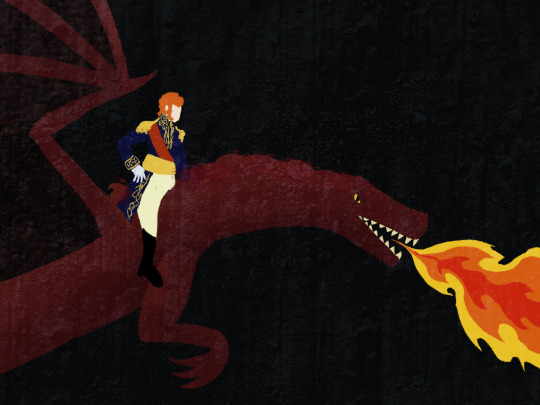
with a roar and a burst of mighty flame, sets the plants ablaze! Possibly including the carnivorous one! And probably the house! Sorry. But what's this?

Why, it's ADC Bory de Saint-Vincent, who hasn't noticed that the world around him has just gotten a whole lot hotter! And that one little spark can set him... alight. Like the one that's currently merrily eating his tailcoat uniform.
31 notes
·
View notes
Text
The Marshalate (Part 2)
Continuing with David G. Chandler’s writings about the marshalate, from my copy of his The Illustrated Napoleon:
But the price he demanded in return for these honors was high. The marshals were required to go on active service in command of the corps d’armee or in senior staff appointments year after year. They were not protected against shot and shell: fully half were wounded one or more times as marshals (Oudinot on no less [sic] than eight occasions), and three - Lannes, Bessieres and Poniatowski - were killed in action or died of wounds sustained in battle. High rank was not a guarantee of personal survival in the early nineteenth century, as military leadership was carried on very much from the forward edge of the battle area (Napoleon himself, of course, being twice wounded - at Toulon [1793] and Ratisbon [1809] - and narrowly avoiding death at Arcola [1796], in front of Acre [1799] and at Arcis-sur-Aube [1814], besides surviving several assassination attempts). Four more met violent deaths outside the field of battle: Murat and Ney in front of firing squads, and Brune at the hands of a royalist mob (all in 1815), while in 1835, Mortier, at the age of sixty-seven, became the victim of an “infernal machine” intended for Louis-Philippe. Berthier’s demise in 1815 remains a mystery; he may have been a fifth.
Apologies for being so detail-obsessed, but it should be “Oudinot on no fewer than eight occasions”. As in “I use less [uncountable quantity] salt in my cooking than before, so I have modified no fewer [it’s possible to count how many] than thirty of my favourite recipes.” It’s possible to count Oudinot’s injuries as a marshal, eight times, so it’s no fewer, not no less. Although some might argue with little exaggeration that Oudinot’s wounds were without number.
There. I got that off my chest, this grammatical mistake that rattles my teeth every time. Now onto something else that bothers me in this paragraph: Chandler alludes to the possibility that Berthier was murdered. While Berthier’s death was certainly violent, I think the likelihood that a team of assassins was sent to throw him from a high window is vanishingly small. I wrote about this at some length in a September 2021 post entitled How Berthier died: An opinion piece.
Back to Chandler:
Even when not on campaign, Napoleon kept his marshals busy with diplomatic, administrative and court duties, which left them little time to enjoy their privileges. He also fanned their rivalries and dislikes - even hatreds - believing in the benefits of “divide and rule”. He intended them to be instruments of his imperial will both on campaign and in battle, and did little to encourage the development of individual talents or independent command skills by way of formal training. Three - Massena, Davout and Suchet - were truly notable commanders in their own right, and would have made names for themselves regardless of any connection with Napoleon; but many of the remainder were far from outstanding commanders at the strategic or operational level, though all were good tacticians and brave individuals able to inspire their troops.
All was well, therefore, while they remained beneath their master’s eye. But when the exigencies of service separated them from the emperor (as in 1812, when Napoleon was fighting in Russia and other French troops were fighting in Spain), problems would often arise. Untrained in independent campaigning, incapable of fighting in a properly integrated command team (as no marshal would acknowledge any other as his superior), the marshals in Spain and elsewhere often allowed their personal feuds to overcome their sense of duty when Napoleon was not present to keep them in line and up to the mark; the results were defeats, disappointments and failures. War-weariness became increasingly noticeable after the disasters of 1812 and had not been unknown among the marshals in earlier years. Only those who were incapacitatingly wounded or had the fortune to incur Napoleon’s wrath and were in consequence left unemployed were able to secure any real rest or time to live with their families and enjoy their privileges. In the end, the system let the emperor down badly. At Fontainebleau in April 1814, a group of marshals, led by Ney, mutinied and enforced Napoleon’s first abdication. During the Bourbon restoration, most of the marshals made their peace with the new regime and several served Louis XVIII in high positions. In 1815, when Napoleon returned from exile on Elba for the “Hundred Days”, only a handful of his former marshals rallied to the tricolor; others continued to be loyal to the Bourbons or made themselves conspicuous by their absence from Paris, ignoring summonses from Davout (Napoleon’s minister of war) or finding excuses for not complying with his orders on behalf of the emperor.
David G. Chandler, The Illustrated Napoleon. New York: Henry Holt and Company, 1973, 1990. pp. 90-92.
Of the marshals who were incapacitatingly wounded, I know for a certainty about Augereau, wounded at Eylau, and Marmont who almost lost an arm in Spain. Soult was severely wounded early in his career, though I don’t remember, assuming I ever knew, how long he was allowed for his recovery ( @josefavomjaaga ?)
When Chandler refers to war-weariness even before 1812, I believe he has Lannes in mind (confirmation from @maggiec70 about this?). I don’t know enough about this to figure out if Chandler also was thinking of other marshals, though I would not be surprised if Augereau had had his fill also well before 1812. As to war-weariness after 1812, nothing would be less surprising; I can’t even start to imagine the effect of the calamitous Russian campaign on the minds of the marshals, and indeed of every member of the military who had the misfortune to witness it.
About the handful of marshals who rallied to Napoleon in 1815, here is what I know: as Chandler wrote, Lannes, Bessieres and Poniatowski were dead; Bernadotte was in Sweden and part of the coalition against Napoleon; Berthier was a virtual prisoner in Bavaria, and would soon be dead; Serurier, Perignon and Kellermann had been out of active service for a dozen years at least, and my guess is that Napoleon would not have given them active commands anyway; Gouvion Saint-Cyr, I believe, and certainly Oudinot, chose to remain neutral; Macdonald, Marmont, and Victor remained at the service of Louis XVIII; Murat was otherwise occupied, though I don’t know precisely the chronology of his activities in 1815 ( @joachimnapoleon : help? pretty please?).
Of those who did join Napoleon in his final adventure, but not necessarily from its very start, there were: Brune, whose decision cost him his life at the hands of a mob; Davout, disastrously left in Paris; Grouchy; Mortier, incapacitated at the time of Waterloo; Massena, with the utmost reluctance; Ney, whose decision also cost him his life; Soult; and Suchet.
I am unsure about the stance taken by Jourdan, Lefebvre and Moncey at the time.
Coming soon, the final part of this topic.
41 notes
·
View notes
Text
Part 45...
The circus goes on.
**
Caroline- you spent all our money on THIS ?
Murat putting tiny raincoats on his rats- They go outside, they need them.
**
Larrey- Okay, truth or dare ?
Berthier- Truth
Larrey- how many hours have you slept this week ?
Berthier- ...
Berthier- ... Dare.
Larrey- Go to bed.
Berthier- I don't like this game.
**
Ney- Would you stab your best friend in the leg for 10 million gold ?
Murat- You stab me, and then when my leg gets better, we buy a big-ass house.
Lannes- You can stab me too, then we'll have 20 million.
Murat- Good thinking!
**
Augereau- BEHOLD, the field in which I grow my fucks! Lay thine eyes upon it, and thou shalt see that it is barren!
**
Ney- Time for plan G.
Murat- Don't you mean plan B ?
Ney- No, we tried plan B a long time ago. I had to skip over plan C due to technical difficulties.
Lannes- what about plan D ?
Ney- Plan D was that desperate disguise attempt half an hour ago.
Bessières- what about plan E ?
Ney- I'm hoping not to use it. Bernadotte dies in plan E.
Davout- I like plan E.
***
#napoleonic shitposting#incorrect marshals quotes#part 45#come on caroline you can't let them catch a cold
21 notes
·
View notes
Text
Title: The Marshal’s Court
Genre: Romantic Dramedy (In the style of Bridgerton)
Setting: The First French Empire, Napoleon’s Marshals as the central characters
Season 1, Episode 3: “The Battle Plans and the Banter”
Episode Synopsis:
Episode 3 continues to layer the complex interpersonal drama among Napoleon’s Marshals, now transitioning into preparations for the looming invasion of England. Tensions rise not just between the marshals, but also within the court, as rivalries and secrets threaten to disrupt their unity. Meanwhile, Junot still hangs on by a thread, Murat and Bessières continue their clandestine romance, and Napoleon keeps a close eye on them all. The episode blends historical accuracy with witty, dramatic flair, adding even more fuel to the fan-driven speculation.
Opening Scene:
The Marshals gather in a war room lit by flickering candlelight, with maps of the English Channel spread out before them. Napoleon stands at the head of the table, explaining his plans for the invasion of England. As the camera zooms in on the faces of the Marshals, the tension is palpable.
Berthier, Napoleon’s Chief of Staff, looks utterly exhausted. Bags under his eyes, his hair disheveled, he’s attempting to stay awake and alert as he scribbles notes at a furious pace. Whispers circulate that Berthier hasn’t slept more than 20 minutes in the last week—a near superhuman feat even by Marshal standards.
Fan-favorite moment: As Berthier scribbles away, his hand moves so fast that papers fly off the table. His frenzied state creates an immediate meme on social media, with fans posting gifs of Berthier working at an inhuman pace, captioned “Napoleon’s Human Typewriter.” Another fan meme quickly spreads: “Can’t Stop, Won’t Stop: The Berthier Story.”
Masséna and Augereau: The Muppet Duo
In a side shot, Masséna and Augereau sit at the far end of the table, exchanging snarky remarks. In true Statler and Waldorf fashion, the two veteran generals—well past their prime, at least in their minds—play the peanut gallery.
As Soult launches into a lengthy explanation about logistics and troop positioning, Augereau smirks. “Is he giving a speech or reciting the French tax code?” he mutters, loud enough for Masséna to chuckle.
Masséna, never one to be outdone, leans in, “He’s already imagining himself taking credit for this campaign, the ambitious devil.”
Fan Reactions: Fans adore Masséna and Augereau as the show’s comic relief, likening them to Bridgerton’s Lady Danbury with their sharp tongues. Their old-man gossiping garners laughter across social media, with fans posting memes of the pair watching over the drama and captioning them with comments like, “Just here for the wine and drama, darling.”
Murat and Bessières: The Secret Romance
Meanwhile, Murat can barely contain his flamboyant excitement about Napoleon’s plans for the invasion. He’s eager for the glory, imagining his cavalry leading the charge across the Channel. He catches Bessières’ eye during the discussion, and for a brief moment, their shared gaze is laden with tension and unspoken desire.
As the other Marshals turn their attention to a debate between Davout and Bernadotte, Murat discreetly passes a note to Bessières. The camera zooms in as Bessières hesitates, torn between his deep Catholic faith and his feelings for Murat. He slips the note into his jacket, visibly distressed.
Historical nod: Murat and Bessières’ friendship was indeed deep and longstanding, dating back to their youth. The romantic twist is, of course, fictional, but fans love the added layer of complexity.
Fan Reactions: The Bessimu ship goes into overdrive with this scene. #Bessimu takes over social media, with fan art and memes depicting Bessières reading Murat’s note in tortured silence. One particularly popular meme shows Bessières staring at a religious icon while Murat lurks behind him with a rose, captioned, “When you love God but also love Murat.”
Davout vs. Bernadotte: The Cold War Escalates
In the war room, the quiet rivalry between Davout and Bernadotte escalates as Bernadotte openly criticizes Davout’s cautious approach to logistics, calling it “overly methodical” and “better suited for a librarian than a battlefield.”
Davout, ever the ice-cold professional, replies without a flicker of emotion, “Perhaps if you spent more time studying military strategy than currying favor, you’d understand the importance of preparation.”
The tension is so thick it could be cut with a knife. The other Marshals grow silent, glancing between the two. Soult, normally poised and calculating, hides a smirk, clearly enjoying the spectacle.
Fan Reactions: This scene ignites the ongoing debate between #TeamDavout and #TeamBernadotte. Fans of Davout praise his composure and military brilliance, while Bernadotte stans claim his political savvy makes him the more interesting character. Social media buzzes with theories on when this Cold War will erupt into something bigger.
Junot: Holding On—For Now
In the background, Junot continues to hold his position, but cracks are starting to show. His erratic behavior from Episode 2 is subdued for now, but small, unsettling moments remind the audience that his mental decline is still simmering beneath the surface.
At one point, Junot has a brief, unexplained outburst during a quiet discussion about troop movements. His old friends—Lannes in particular—exchange worried glances, but nothing more is said. As the meeting breaks up, Eugène approaches him, trying to offer some help, but Junot brushes him off with a half-maniacal laugh.
Fan Reactions: Fans are starting to get worried about Junot, with hashtags like #SaveJunot and #StayStrongJunot popping up. Though historically accurate viewers know where Junot’s arc is headed, casual fans are still holding onto hope that the showrunners will find a way to redeem him or at least slow his inevitable breakdown.
Soult and Lefebvre: The Plotters
Soult, still strategizing every angle, finds himself in a secret conversation with Lefebvre as the episode progresses. Lefebvre, the grizzled veteran of the group, is blunt as ever, but Soult knows how to use him.
“Davout’s getting too close to the Emperor’s ear,” Soult mutters. “If we want to keep our own power, we need to… adjust the Emperor’s view of him.”
Lefebvre raises an eyebrow. “What are you suggesting?”
“I’m suggesting we remind Napoleon that no Marshal is irreplaceable. Even Davout.”
The wheels of political scheming are clearly turning, and the stage is set for Soult to orchestrate a quiet campaign to undermine Davout’s growing influence.
Fan Reactions: Fans love Soult as the calculating puppet master. Memes comparing him to Game of Thrones’ Littlefinger start making the rounds, with Lefebvre painted as his rough-and-ready accomplice. One particularly popular fan theory suggests that Soult’s scheming will eventually come back to haunt him—though history buffs know Soult’s ambitions were, in fact, very real.
Eugène: Trying to Fit In
Eugène tries desperately to make himself useful throughout the episode, offering advice here and there, but mostly being ignored. In one scene, he approaches Napoleon, looking for something to do, but Napoleon brushes him off, saying, “You’ll have your time, Eugène. This isn’t it.”
Eugène, ever the dutiful son-in-law, nods, though disappointment flickers across his face. He walks away, clearly feeling out of place among these hardened Marshals.
Fan Reactions: Fans feel a bit of sympathy for Eugène, who is portrayed as the awkward outsider trying to keep up with the powerhouse personalities around him. A few fan theories suggest that Eugène might step up in a future episode, but for now, he’s mostly seen as the “soft boy” of the group, leading to memes like, “When you’re just trying to impress your stepfather, but he’s Napoleon.”
Closing Scene:
As the episode closes, the Marshals disperse from their meeting. Murat catches Bessières in a secluded corridor, pressing him about the note. Bessières, torn between duty and desire, tries to brush him off, but Murat—ever persistent—pulls him into a passionate embrace.
Bessières breaks away, conflicted, and murmurs, “This can’t continue.” The screen fades to black as Murat watches him walk away, a determined smile on his lips.
Fan Reactions: The Bessimu shippers explode with excitement. Fan art, gifs, and memes flood the internet, with captions like, “Just admit it, Bessières, you’re in love!” and “Murat: The Man Who Won’t Give Up.”
Next Episode Teasers:
In a shocking twist, the episode ends with no next episode teasers. The fandom immediately erupts into panic mode, with speculation running wild. Is the show taking a break? Will Episode 4 even happen? Social media is set alight with theories ranging from “Napoleon’s controlling the show now!” to “The writers are plotting something big!”
#napoleonic era#napoleonic shitpost#ai hell#napoleon’s marshals#napoleon bonaparte#the marshal’s court
4 notes
·
View notes
Text
This is something I would love to see in a painting! It’s a side of Murat too often overlooked because everyone is preoccupied with his appearance.
As to Belliard, he gets mentioned a lot in Joseph’s correspondence as well. He was gouvernor of Madrid for some time. His record with Joseph is mixed, too, it seems, though a lot better than Soult’s 😁. At some point Joseph wanted to replace him with a Spaniard, but Napoleon intervened and demanded Belliard be put back in place. And at another, after Belliard had learned that the officers in Soult’s armée du Midi were granted a food allowance, he demanded the same thing for the officers in the army under Joseph’s command. (Though in truth, this could rather have been an attempt by Joseph to denounce Soult for having exceeded his authority by granting these allowances.)
I’ve also checked Eugène’s correspondence. He writes a letter to Auguste from Smolensk, detailing that they had minus 17 to 18 degrees. He does not say where he was staying in Smolensk, though in all likelihood he was far better off than poor Griois. Eugène did still have one carriage at this point, because he mentions that he was transporting his secretary Méjan in it. Plus, he was still suffering from a swollen leg he had strained too much.
Fun fact: He also receives at least three orders from Berthier to finally come and pick up the hand mills accorded to 4th corps (which were of course useless baggage by then, as there was no grain).
Excerpt:
Belliard, still suffering from the wound he’d received at Mojaïsk, was lying down on a bad pallet, on which Murat occupied a part, sitting at his feet. The picture was not without interest. A king, because after all he was one and was recognized as such, keeping company with one of his wounded generals and appearing as a friend caring for another friend, it is a rare thing, and I confess I was touched by it.
42 notes
·
View notes
Text
Napoleonic birthday calendar
A quick first attempt at a combined calender; I hope I have not accidentally dropped somebody on the way [searches floor]. Whom or what else should we add? I’ve already taken the liberty to add Junot and Duroc.
And just for the record: All the work was done by @northernmariette, I’m just posting on her behalf due to technical problems.
January
3 Jan 1777: Elisa Bonaparte-Baciocchi
7 Jan 1768: Joseph Bonaparte
🎖 10 Jan 1769: Marshal Ney
🎖 26 Jan 1763: Marshal Bernadotte
February
🎖 13 Feb 1768: Marshal Mortier
March
🎖 2 Mar 1770: Marshal Suchet
🎖 13 Mar 1763: Marshal Brune
20 Mar 1822: Napoléon II,
25 Mar 1782: Caroline Bonaparte-Murat
🎖 25 Mar 1767: Marshal Murat
27 Mar 1746: Charles (Carlo) Bonaparte
🎖 29 Mar 1769: Marshal Soult
April
10 Apr 1783: Hortense de Beauharnais-Bonaparte
🎖 10 Apr 1769: Marshal Lannes
🎖 13 Apr 1764: Marshal Gouvion Saint-Cyr
🎖 25 Apr 1767: Marshal Oudinot
🎖 29 Apr 1762: Marshal Jourdan
May
🎖 6 May 1758: Marshal Masséna
🎖 7 May 1763: Marshal Poniatowsky
🎖 10 May 1770: Marshal Davout
21 May 1775: Lucien Bonaparte
🎖 28 May 1735: Marshal Kellerman
🎖 31 May 1754: Marshal Pérignon
June
23 June 1763: Joséphine Bonaparte
July
🎖 20 Jul 1774: Marshal Marmont
🎖 31 Jul 1754: Marshal Moncey
August
🎖 6 Aug 1768: Marshal Bessières
15 Aug 1769: Napoléon Bonaparte
24 Aug 1750: Laetitia Ramolino-Bonaparte
September
2 Sept 1778: Louis Bonaparte
3 Sept 1781: Eugène de Beauharnais
24 Sept 1771: Junot
October
20 Oct 1780: Pauline Bonaparte
🎖 21 Oct 1759: Marshal Augereau
🎖 23 Oct 1766: Marshal Grouchy
🎖 25 Oct 1755: Marshal Lefebvre
25 Oct 1772: Duroc
November
15 Nov 1784: Jérôme Bonaparte
🎖 17 Nov 1765: Marshal Macdonald
🎖 20 Nov 1753: Marshal Berthier
December
🎖 7 Dec 1764: Marshal Victor
🎖 8 Dec 1742: Marshal Serurier
12 Dec 1791: Marie-Louise Bonaparte
56 notes
·
View notes
Text
A scene from the ATLA/Sailor Moon crossover:
It was Berthier's first time to go to Tianxia, as she'd learned Azula's homeworld was named, at least by the Silver Crystal (she was still amused to learn Azula had been just as surprised as she was to have that knowledge). The portal was simple enough, simpler than the time-travel Wiseman had drawn them all into not so long ago. A matter of weightlessness and infinity distorting one's perceptions.....and then she blinked.
The air smelled different. Not that of Crystal Tokyo as it had been, nor that of what it had become. Nor that of the Earth-that-was. It smelled of incense and smoke and ash, of long generations of torches worked into wood. The place was brilliantly red and she smelled faint odors of spice, cinnamon and nutmeg, of curries, maybe.
Above all it smelled clean. Even Crystal Tokyo had faint undertones of industry, of the kind that kept a society that traveled through the stars in business. She knew the Fire Nation was industrialized but it didn't seem to have this in a direct proximity to the Palace.
They were holding hands, and she saw that, smiling at Azula who smiled back just as broadly.
"Thank you," she said quietly, her beloved raising an eyebrow. "For trusting me to be here." Understanding what she meant, Azula gave her a wry grin. "Well Galaxia's gone and the worst that can happen here is running into Ursa."
Berthier laughed loudly at that one, and that laugh brought in someone who walked around with an initial look of confusion and then eyes that went very wide. Berthier turned to see who'd stepped in and found herself looking for the first time at a Waterbender from Azula's homeworld.
The impression that came to mind was of the culture that now insisted they were called Inuit. Her skin was darker, more like that of a higher-caste Hindu woman, though the hair style was very much Inuit-style, when Berthier got a good look. She wore relatively light clothes (and Berthier was glad she'd listened to Azula, because this place was hot, and for the first time she appreciated why Azula found complaints about warm weather in Japan to be so amusing).
Her eyes were as blue as Berthier's own and she saw in them someone who had a warm heart.
That person surprised her by speaking fairly good Japanese.
"Greetings, Berthier-san. I am Katara of the Southern Water Tribe."
Berthier surprised her in turn by extending her hand for a Water Tribe handshake in precisely the manner her people did so, and hoping she remembered what Azula had taught her of the language and its greetings.
"Hello, Katara of the South. I am Berthier, of Neptune."
"You speak my language," she said in surprise as they shook hands.
Berthier nodded. "Azula taught me. I don't speak much, but...."
Katara blinked. Then looked over to Azula. "You and your perfectionism," she said in Fire Nation speech, an amused smile on her face.
Azula shrugged lightly.
"So," Katara said with a slight teasing lilt to her voice, "I hear you're a Waterbender yourself?"
Berthier smirked when they broke the handshake and held up her left hand, forming the image of a dragon moving above and a seal moving below, letting the image twirl as Katara stared in surprise, before she flicked her wrist slightly and dispelled it.
"My specialty is ice and snow, I don't really do the more....complete water well."
Katara nodded. "I've met Mizuno and Kaioh, so it's nice to see someone else who does ice."
Berthier gave her a warm smile and Azula grinned the whole way as she watched Katara and Berthier connecting over ways that water spoke to them. She hadn't planned on it, or even dared to hope that the Water siblings were over for a visit, but if they were.......well, this might be her best visit yet even if she had to grit her teeth and deal with Ursa's fumbling attempts to try to be a mother to an adult she never was to the child.
10 notes
·
View notes
Text
Events 2.15
438 – Roman emperor Theodosius II publishes the law codex Codex Theodosianus. 590 – Khosrau II is crowned king of Persia. 706 – Byzantine emperor Justinian II has his predecessors Leontios and Tiberios III publicly executed in the Hippodrome of Constantinople. 1002 – At an assembly at Pavia of Lombard nobles, Arduin of Ivrea is restored to his domains and crowned King of Italy. 1113 – Pope Paschal II issues Pie Postulatio Voluntatis, recognizing the Order of Hospitallers. 1214 – During the Anglo-French War (1213–1214), an English invasion force led by John, King of England, lands at La Rochelle in France. 1493 – While on board the Niña, Christopher Columbus writes an open letter (widely distributed upon his return to Portugal) describing his discoveries and the unexpected items he came across in the New World. 1637 – Ferdinand III becomes Holy Roman Emperor. 1690 – Constantin Cantemir, Prince of Moldavia, and the Holy Roman Empire sign a secret treaty in Sibiu, stipulating that Moldavia would support the actions led by the House of Habsburg against the Ottoman Empire. 1764 – The city of St. Louis is established in Spanish Louisiana (now in Missouri, USA). 1798 – The Roman Republic is proclaimed after Louis-Alexandre Berthier, a general of Napoleon, had invaded the city of Rome five days earlier. 1835 – Serbia's Sretenje Constitution briefly comes into effect. 1862 – American Civil War: Confederates commanded by Brig. Gen. John B. Floyd attack General Ulysses S. Grant's Union forces besieging Fort Donelson in Tennessee. Unable to break the fort's encirclement, the Confederates surrender the following day. 1870 – Stevens Institute of Technology is founded in New Jersey, US, and offers the first Bachelor of Engineering degree in mechanical engineering. 1879 – Women's rights: US President Rutherford B. Hayes signs a bill allowing female attorneys to argue cases before the Supreme Court of the United States. 1898 – The battleship USS Maine explodes and sinks in Havana harbor in Cuba, killing about 274 of the ship's roughly 354 crew. The disaster pushes the United States to declare war on Spain. 1899 – Tsar Nicholas II of Russia issues a declaration known as the February Manifesto, which reduces the autonomy of the Grand Duchy of Finland, thus beginning the first period of oppression. 1909 – The Flores Theater fire in Acapulco, Mexico kills 250. 1923 – Greece becomes the last European country to adopt the Gregorian calendar. 1925 – The 1925 serum run to Nome: The second delivery of serum arrives in Nome, Alaska. 1933 – In Miami, Giuseppe Zangara attempts to assassinate US President-elect Franklin D. Roosevelt, but instead shoots Chicago mayor Anton J. Cermak, who dies of his wounds on March 6. 1942 – World War II: Fall of Singapore. Following an assault by Japanese forces, the British General Arthur Percival surrenders. About 80,000 Indian, United Kingdom and Australian soldiers become prisoners of war, the largest surrender of British-led military personnel in history. 1944 – World War II: The assault on Monte Cassino, Italy begins. 1944 – World War II: The Narva Offensive begins. 1945 – World War II: Third day of bombing in Dresden. 1946 – ENIAC, the first electronic general-purpose computer, is formally dedicated at the University of Pennsylvania in Philadelphia. 1949 – Gerald Lankester Harding and Roland de Vaux begin excavations at Cave 1 of the Qumran Caves, where they will eventually discover the first seven Dead Sea Scrolls. 1952 – King George VI of the United Kingdom is buried in St George's Chapel, Windsor Castle. 1954 – Canada and the United States agree to construct the Distant Early Warning Line, a system of radar stations in the far northern Arctic regions of Canada and Alaska. 1961 – Sabena Flight 548 crashes in Belgium, killing 73, including the entire United States figure skating team along with several of their coaches and family members. 1965 – A new red-and-white maple leaf design is adopted as the flag of Canada, replacing the old Canadian Red Ensign banner. 1971 – The decimalisation of the currencies of the United Kingdom and Ireland is completed on Decimal Day. 1972 – Sound recordings are granted U.S. federal copyright protection for the first time. 1972 – José María Velasco Ibarra, serving as President of Ecuador for the fifth time, is overthrown by the military for the fourth time. 1982 – The drilling rig Ocean Ranger sinks during a storm off the coast of Newfoundland, killing 84 workers. 1989 – Soviet–Afghan War: The Soviet Union officially announces that all of its troops have left Afghanistan. 1991 – The Visegrád Group, establishing cooperation to move toward free-market systems, is signed by the leaders of Czechoslovakia, Hungary and Poland. 1992 – Serial killer Jeffrey Dahmer is sentenced in Milwaukee to 15 terms of life in prison. 1992 – Air Transport International Flight 805 crashes in Swanton, Ohio, near Toledo Express Airport, killing all four people on board. 1996 – At the Xichang Satellite Launch Center in China, a Long March 3B rocket, carrying an Intelsat 708, veers off course and crashes into a rural village after liftoff, killing somewhere between six and 100 people. 1996 – The Embassy of the United States, Athens, is attacked by an antitank rocket, launched by the Revolutionary Organization 17 November. 2001 – The first draft of the complete human genome is published in Nature. 2003 – Protests against the Iraq war take place in over 600 cities worldwide. It is estimated that between eight million and 30 million people participate, making this the largest peace demonstration in history. 2010 – Two trains collide in the Halle train collision in Halle, Belgium, killing 19 and injuring 171 people. 2012 – Three hundred and sixty people die in a fire at a Honduran prison in the city of Comayagua. 2013 – A meteor explodes over Russia, injuring 1,500 people as a shock wave blows out windows and rocks buildings. This happens unexpectedly only hours before the expected closest ever approach of the larger and unrelated asteroid 2012 DA14. 2021 – Sixty people drown and hundreds are missing after a boat sinks on the Congo River near the village of Longola Ekoti, Mai-Ndombe Province, Democratic Republic of the Congo.
0 notes
Text
I only worry for what sorts of important things you might miss given your... sometimes inattentive nature.
Ah, the severed arms. Lasalle will probably never get over that.
Who else could be suggested but the Emperor? Or perhaps Marshal Berthier could administrate it into submission in triplicate. If it is capable of feeling, then perhaps sufficient boredom would do it. Make the land submit torment request forms in triplicate or something.
His attempts at stiff politeness are failing rather rapidly now, the bitterness escaping its prison of manners. And when it does so, that wound on his arm seems to hurt a little more than usual.
@murillo-enthusiast & @thehussargeneral

————————⁘•⁘————————
Oh. So that's your conversational partner. Yeah, this might get weird. You might try to maintain some civility, you might simply remain deeply cold to each other, or perhaps your potentially mutual dislike of your partner will prove to be too strong to resist, resulting in some form of argument.
Please use this thread to converse - or argue - with your partner. If you're stuck, we'd recommend starting with your reaction to realising who your partner is.
————————⁘•⁘————————
OOC Considerations:
Please converse with your partner in this thread. Do not post in other specific pairing threads you are not tagged in - if you would like to address someone else (or stare pleadingly at a friend for help), you can use the general table thread.
While our characters will be aware of appropriate manners in this situation, it's up to you whether or not they maintain civility given their present circumstances. Arguments, tension and awkwardness are all encouraged, just don't get too disruptive like setting the place on fire or something.
Don't take in-character actions personally. We're literally sitting people who hate each other together for the explicit purpose of observing the resulting carnage. Rudeness in-character does not reflect out-of-character feelings.
As I'm sure we're all aware, we are humans with lives, and it's okay if you can't respond immediately to everything. So long as there is some amount of conversation we can call it a success.
These threads can run for as long as you want to keep them running. While officially the event lasts for 4 weeks, if you have a good thread going on you are absolutely welcome to continue it past that time.
If your partner has disappeared (or not appeared to begin with), feel free to communicate with others through the general table thread. Conversations had here are considered separate to the (in-character) private ones in the designated threads.
Enjoy!
#lasalle correspondence#napoleonic roleplay scene#event : a tense dinner#un-souper-tendu#murillo-enthusiast
28 notes
·
View notes
Text
(Some) Greek Gods as Historical Figures
So some days ago I secretly logged back into Mythology and Cultures amino and I stumbled across post of casting historical figures as the gods from Greek mythology. Of course, I hated it, so I made my version of this.
Note: Of course, this is going to have quite a lot of Napoleonic figures, since I am more familiar of this period, but please do reblog this post (or tag me on another post) with the hashtag “#mythical figures as historical people” and add some more of your historical figure Greek God fancasts!
Note 2: this post is for entertaining purpose, and just me introducing some guys to y’all and I am not a historian myself and hopefully you all would still like my takes😅
1. Zeus - Louis XIV of France
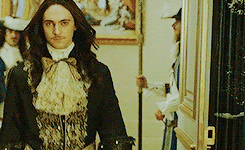
First and foremost, I shall introduce the king of gods featured in Greco-Roman myths. You may ask, why don’t I cast Henry VIII of England? Well, my reason is very simple: Henry is far from accurate to Zeus in actual myths.
To be honest, Zeus has a more “absolute power” energy in it, and Louis XIV totally has rocked it (like that iconic line “l’état, c’est moi (I am the state)”). Well, Henry also has that kind of energy but everyone only remembers his six wives and the uncountable number of bloodshed (not to mention Catherine of Aragon is a much better fighter than him—got this from Horrible Histories OwO)... Anyways, Louis XVI is basically a Zeus.
2. Hera - Catherine of Aragon

This brings to Catherine of Aragon herself. She’s a total Q U E E N and if you have watched “Six” the musical you already got what I mean (like, being the wife who married to Henry the longest). There’s also the early warlike aspect in Hera (featured in Homer’s works) that Catherine has it as well (at least you know that she’s getting more victories than Henry if you have watched Horrible Histories season 6, in the episode with Rowan Atkinson playing Henry VIII (which is sad because I want Ben Willbond to play him—he iconic to the HH fandom)), making her a great casting of Hera.
Hera, in my opinion, is a very strong woman who has to take Zeus’s shit and I could totally understand why she took revenge on the girls that Zeus has slept with—but anyways, hopefully you guys would like it :3
3. Aphrodite - Pauline Bonaparte
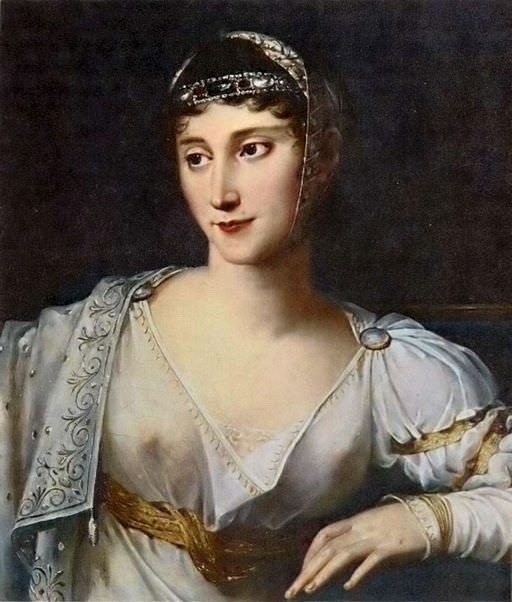
This is half-self-explanatory, really—just look at that statue she posed as Venus, the Roman equivalent of Aphrodite.
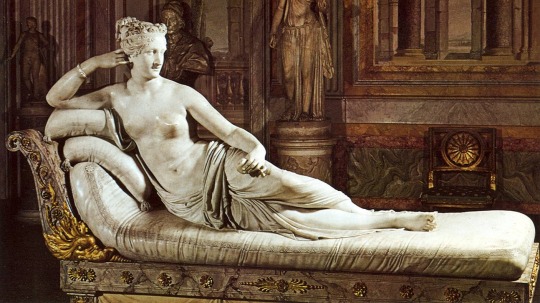
Pauline was famed for her beauty in her time, also a big chunk of scandals from her affairs (which bugs her big brother Napoleon, a lot). Nevertheless, despite her big spending habits and a great sexual appetite, she always helped Napoleon in some surprising ways (like she sold her house in Paris to the Duke of Wellington to get the funds for Napoleon).
Just like Aphrodite herself, Pauline harnessed her beauty very well. Thus, I rest my case.
4. Apollo - Joachim Murat or Emperor Franz Joseph I of Austria
(Warning: long content ahead)
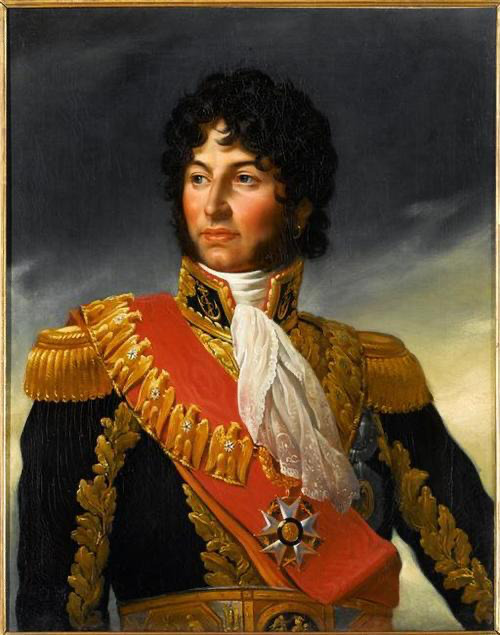
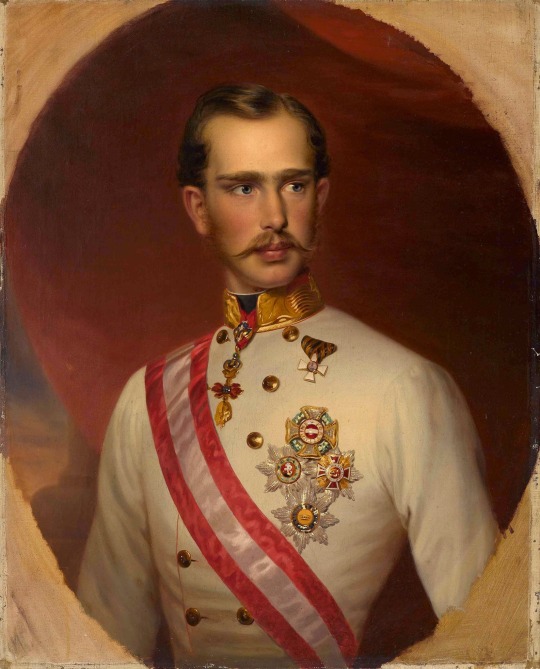
Firstly, let me briefly introduce them because you guys might not know them much.
Joachim Murat was a marshal of France, also one of Napoleon’s brother-in-law, grand duke of Berg and Cleves from 1806 to 1808 and the King of Naples from 1808 to 1815. After the wars, he attempted to escape yet was caught and executed in 1815 in Pizzo, Italy (if you have read of Alexandre Dumas’s “Famous Crimes” you might know him—by the way no one has cut his head off and sent it to that big nose King Ferdinand).
For those who have watched “Elisabeth” or the “Sissi” movies, you might know Franz Joseph I of Austria already but you might not know much about himself besides being the husband of the (in)famous Empress Sisi (ie. Empress Elisabeth of Austria). He was the Emperor of the Austria from 1848 to his death in 1916—one of the longest reigning European monarchs in history. During his reign, the empire had been through a lot of change, most notably, the creation of Austria-Hungary. Nevertheless, he was also the Emperor who started World War I and he died of old age in the midst of the Great War.
For Apollo, I’m not casting musicians because this is quite overdone. I rather want to shed a light to the other arts that he represented in Greco-Roman mythology. This makes me want to draw a parallel to Joachim Murat as he was also a great sucker of classical literature. Plus, he also was known to be a flamboyant dresser (his nickname was “the Dandy King” by the way), also the designer of the uniforms of the Neapolitan army (with an excessive amount of amaranth, perhaps his favourite colour). Really, everyone just sees him as a great flamboyant himbo but in reality, he’s iconically badass in the battlefield as the First Horseman of Europe. Well, also he’s known for being extremely good with women even though his wife Caroline was fierce as hell. So, in my opinion, he fits the image of Apollo that we know.
However, you guys might feel surprised why I picked Franz Joseph for Apollo. Well, he really... was a rather mediocre ruler in my opinion, and perhaps our most memorable image of him was the senile emperor who signed the declaration of war to Serbia. Nevertheless, he was a well-liked man among his subjects, at least to some old citizens of Austria-Hungary telling future generations. Besides, culture flourished in Vienna under his reign—with notable figures like Sigmund Freud, Ludwig Wittgenstein and Erwin Schrödinger. Despite the series of unfortunate events which made the empire started to crumble, Austria-Hungary arguably has its cultural importance in Europe. Sounds like what Apollo would do if he’s a ruler, somehow.
Well, enough of his political achievements, let’s talk about his private life... which was probably the actual reason why I picked him.
Enter Duchess Elisabeth in Bavaria, the Empress of Austria and Queen of Hungary, also known as Sisi.
On a side note, Marshal Louis-Alexandre Berthier of France, Prince of Neufchâtel and of Wargram, was Empress Sisi’s grand-uncle in-law via his marriage to Duchess Maria Elisabeth in Bavaria

Absolutely love Pia as Elisabeth in the musical so please don’t mind me using a gif from this :3 ((also, “Elisabeth” spoiler alert
Franz originally was to marry her sister Helene (nicknamed Néné), nevertheless, on the first meeting in Bad Ishl, he has fallen for the young Elisabeth, head over heels—making him defying his domineering mother, Archduchess Sophie, for the very first time. Elisabeth also liked him and did not expressed her refusal either, so they got married in St. Augustine’s Church in 29th April, 1854.
However, the marriage was not well. Sisi was not accustomed to the strict Austrian court especially Archduchess Sophie (also she was not really a fan of intimacy). Poor Franz was rather helpless in situations between his mother and his wife, and eventually, Sisi chose her freedom over her duty as Empress, traveling around the world. They two briefly went back together during the Austro-Hungarian compromise, yet she was constantly not there. Eventually, Sisi was assassinated by an anarchist named Luigi Lucheni during her stay in Geneva, Switzerland, and Franz was devastated over her death (“she will never know how much I love her”).
To Franz, he loved her so, but he really didn’t understand her needs. Even though he had countless mistresses and female companions in Vienna, he still missed his wife. I say, he was really unlucky when it comes to love. Like Apollo himself, he dated countless nymphs and humans, but a lot of his notable relationships did not have a good end. (Probably Cyrene was the most lucky one, yet she also has chosen to be left alone after mothering several children with Apollo.) For this, I picked Franz Joseph as Apollo.
5. Ares - Jean Lannes or Michel Ney
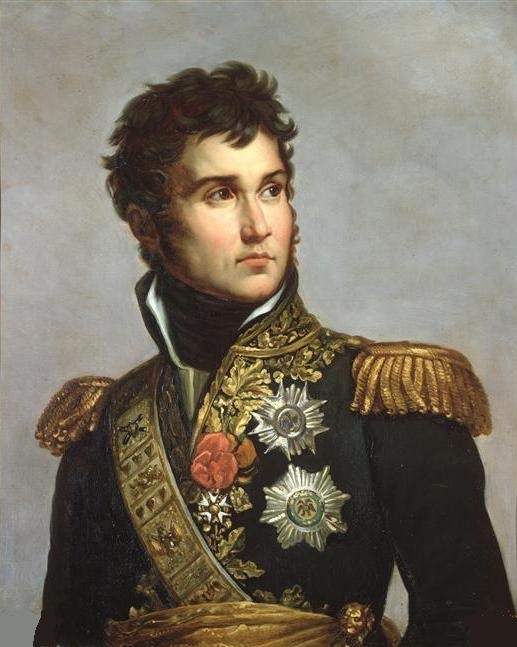
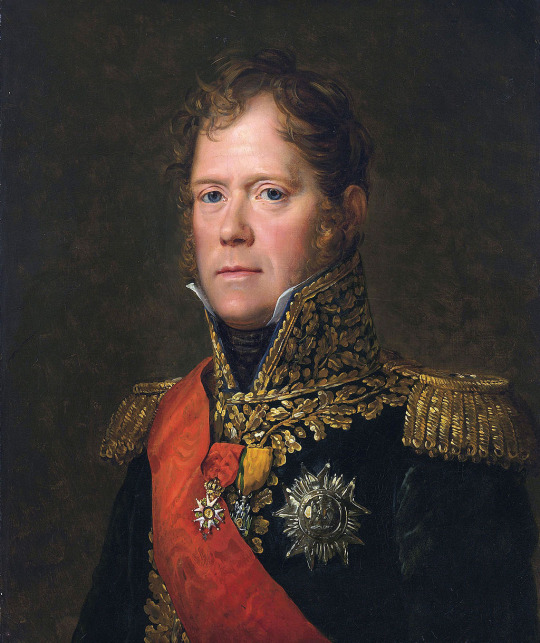
As usual, for those who don’t know much history, I shall briefly introduce my babeys these two great soldiers.
Jean Lannes was one of the marshals of Napoleon, known for being one of Napoleon’s closest friends and his fiery personality, and is considered one of the best marshals of the 1st French Empire. His finest moments including the Battle of Ratisbon in which he led his men to storm the well-guarded city with ladders (hence his nickname “ladder lord” in our very humble Napoleonic marshalate fandom :3). Sadly, he died of the wound he received in the battle of Aspern-Essling in 1809.
Michel Ney was also one of the marshals of Napoleon, known for his extreme valour (yep, he is known as the “Bravest of the Brave”). As you might know, he was one of the marshals who was in Waterloo, yet, his finest hour was during the retreat from Russia in the disasterous 1812. Sadly, he was arguably the most prominent victim of the White Terror under the second Bourbon restoration, executed in 1815 (**I am not accepting any kind of conspiracy theories of my babey survived and died in America😤).
Speaking of Ares, I have a lot of things to say (that’s my dad ;-; no jkjk). He is really not that bloodthirsty idiot who casually hates humans. Well, he’s more like a fiery dork and a man who was very faithful to his lovers, and fights very well (by the way also one of the best dads). So, the bois that come into my mind are automatically two of the most courageous marshals of France.
Lannes, if I have to get him a godly parent, it would definitely Ares. He resembled the god a lot (also I sometimes imagined Ares as a smol bean with dark hair), probably looks the most like Ares himself. He got that fiery temper, that faithfulness to his wife Louise, also being a very courageous fighter in the field—well he literally was like, “NO LEMME STORM DAT CITY *grabs ladder*”.

There you have it, my big bro our ladder lord Jean Lannes who can pull off a perfect Ares.
Ney is like a slightly introverted (and mature) version of an Ares person. You can guess his temper already through his famed auburn hair, and indeed despite his shy exterior his temper sometimes was a bit explosive, and a bit impatient (which was somehow one of his fatal flaws). He was a great fighter, known as a skilled swordsman in his youth. And you all know how brave he is in his famed epithet. Michel Ney is purely badass (and C U T E) you know (and he needs a lot of hugs because he has really been though a lot in the wars, and was a possible case of PTSD which was shown in his arguably suicidal behaviour during the battle of Waterloo). That’s why I casted him as the Greek god Ares OwO
//
And there you have it, my interpretations on the Greek gods via people in history. I originally would like to include more but somehow I realised that I have written too much about my picks. So, if you want to add more, reblog this post or tag me on the post you made on this topic (and please use the hashtag “mythical figures as historical people” so that I could look into your choices via the search bubble on this app🥺).
Last but not the least, I hope you all lovelies like this, also have learnt something new via my brief introductions on some historical people. Have a great day!
#greek mythology#finally some Greek mythology content#i hope you all don’t mind me overselling my bois#no shipping intended on the castings#this is from an ex-Hellenic devotee who had been in Classics class#Zeus#Hera#Aphrodite#Apollo#Ares#methods of procrastinating from university tasks and responsibilities#why am I still up in 2am I said I would get a proper sleep tonight for excessive headbanging to David Bowie for his birthday🌚#the relationship between Franz and Sisi got me sobbing all the time#Louis XIV#Catherine of Aragon#pauline bonaparte#joachim murat#franz joseph i#elisabeth of austria#elisabeth of bavaria#empress sisi#jean lannes#michel ney#mythical figures as historical people
93 notes
·
View notes
Note
Hi there! I've been very interested with Napoleon & his marshals as of late, and when I saw your blog I thought it was a good place to ask about it :) Do you have any Napoleon biographies with reliable source? Oh, and also any good biographies on the marshals? Many thanks! 💛
Hello! I'll try to help as much as I can.
The only Napoleon biographies I've read (so far) are:
-Napoleon: A Life, by Andrew Roberts -Napoleon: A Life, by Adam Zamoyski -Napoleon Bonaparte: An Intimiate Biography, by Vincent Cronin -Napoleon: Soldier of Destiny//Spirit of the Age 1805-1810//Decline and Fall of an Empire: 1811-1821; a three-volume biography by Michael Broers
So there are still quite a few prominent ones I need to read--and I haven't even attempted to read any of the French ones. But out of the ones I've read, I'd most recommend Cronin and Roberts. Cronin gives a great, humanizing portrait of Napoleon, and Andrew Roberts' book is very nicely balanced and well researched in my opinion. Both are pretty thorough with their sourcing. Cronin's also has a great appendix regarding the reliability of various Napoleonic memoirs. As much as I like Broers' political analyses in his books, he isn't as careful with his fact-checking and I admit I kind of soured on him a bit with the last book.
As far as biographies on the marshals, I have not read many. My primary focus for the past few years has been on Murat. In English, I would not say that there is currently a "definitive" biography on him, though a new English one is currently in the works for which I have very high hopes. But currently the only English biographies on Murat are A. Hilliard Atteridge's Joachim Murat: Marshal of France and King of Naples (1911), and The Betrayers by Hubert Cole, which is a dual biography of both Joachim and Caroline Murat, published in 1972. Both have their strengths and weaknesses. Atteridge's book goes into much more detail about Murat's early military career, and about the military campaigns in general. Cole kind of just breezes through Murat's early years and keeps the campaign descriptions fairly brief (which I'm honestly okay with; I find deep analyses of military tactics extremely boring if I'm being honest). Cole's strength, though, is in the number of primary sources he utilizes, and his excellent bibliography has been a goldmine for me in my own research. He also fleshes out Murat's reign in Naples in much better detail than Atteridge. Cole had far more access to Murat's correspondence than Atteridge did--as well as to many memoirs and archives--so Murat's story just feels far more fleshed out in Cole's book. I will add though that Cole, despite the title of the book, is actually very sympathetic to the Murats, and clearly not a fan of Napoleon.
For Marshal Lannes, I'd be remiss if I didn't recommend our own @maggiec70's marvelous work, The Emperor's Friend: Marshal Jean Lannes.
For the other marshals, I have all of these but the one on Davout, but I have not yet gotten around to reading them:
-Ney: Marshal Ney, The Bravest of the Brave, also by A. Hilliard Atteridge (1914), Marshal Ney: The Romance and the Real, by Raymond Horricks (1982), alternately titled for the newer edition Military Politics; From Bonaparte to the Bourbons: The Life and Death of Michel Ney 1769-1825 (1995)
-Berthier: By Command of the Emperor: A Life of Marshal Berthier, by S.J. Watson (1988)
-Davout: The Iron Marshal: A Biography of Louis N. Davout, by John G. Gallaher (2018)
-Soult: Napoleon's Maligned Marshal, by Sir Peter Hayman, (1990)
I hope that helps! Thanks for the ask :)
36 notes
·
View notes